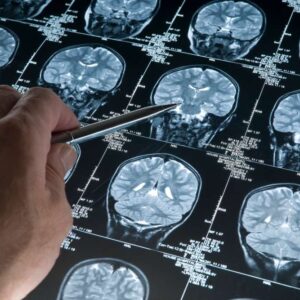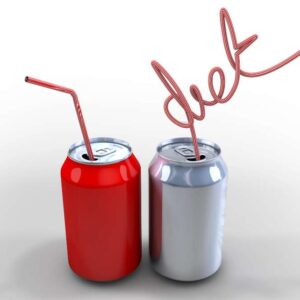
Weird Plants BLAST Alzheimer's Plaque
Dear Living Well Daily Reader,
As we age, Alzheimer’s and Parkinson’s can go from a distant possibility to a life-changing reality.
And things like going to the grocery store, visiting your grandkids and even sharing stories about the good ol’ days can quickly become impossible.
Even worse? You end up finding out that most of the mainstream treatments out there are practically worthless.
But that all could be about to change…
According to new research, two plants could help you win the fight against these age-related brain diseases by destroying the plaques that cause them.
And the best part — you don’t need Big Pharma to get your hands on these plaque-busting plants.
Antioxidant-rich prickly pear (a type of cactus) and brown seaweed are the powerful plants at the center of this exciting research.
Both Alzheimer’s and Parkinson’s are caused by the buildup of sticky proteins that wreak havoc on the nervous system and can eventually affect your memory and mobility.
So you can potentially stop these diseases in their tracks if you can stop the proteins from accumulating.
And that’s exactly what prickly pear and brown seaweed seem to do.
In a recent lab study using brewer’s yeasts, researchers found that extracts from prickly pear and brown seaweed could treat clumps of beta-amyloid plaques, a tell-tale sign of Alzheimer’s.
Next, the scientists tested the plants on fruit flies that were genetically modified to have Alzheimer’s symptoms. When the files were treated with the seaweed extract, their life spans were extended by two days. When given the prickly pear extract, they lived an extra four days.
While a few more days may not seem like a lot, it’s dramatic when you consider that a single day in a fruit fly life is the equivalent of a year in a human life. Plus, the extracts increased the flies’ mobility by a significant 18 percent.
Even better, scientists found that the extracts also prolonged the lives of flies with alpha-synuclein protein buildup. These gummy proteins can cause symptoms of both Alzheimer’s and Parkinson’s and slowly affect your memory and mobility.
With the ability to blast both beta-amyloid and alpha-synuclein proteins, these two powerful plants could be a turning point in Alzheimer’s and Parkinson’s treatment.
And there’s no doubt that Big Pharma will want to cash in on this with synthesized and overpriced versions of these incredible extracts.
Fortunately, you can get your hands on both plants in their natural forms right now from natural health stores and online retailers.
And the best part — they are cheap! Brown seaweed goes for about $15 for a month’s supply, and prickly pear, also known as nopal, goes for about $8 for a month’s supply.
Questions? Drop us a line at feedback@livingwelldaily.com
Live well,

Natalie Moore
Managing editor, Living Well Daily
Ed. Note: Please send your feedback: nmoore@lfb.org – and click here to like us on Facebook.
Written By Natalie Moore
Natalie Moore is a dedicated health researcher with a passion for finding healthy, natural, and science-based solutions. After a decade of direct healthcare experience in western and natural medicine, she was involved in public health research before joining Living Well Daily.
View More Free Articles
Mailbag: End Midnight Bathroom Runs with These 6 Natural Fixes
“Thank you for your Living Well Daily newsletter! Can you please share any thoughts on how to support prostate health? Especially getting up and going to the bathroom twice a night. The stream is not as strong as it once was; it takes longer to empty. Thanks!” —Night Shift Hi Shift, Thank you for being...
Build a “Memory Savings Account” with This Daily Habit
Remember when you used to make fun of your parents for not remembering things—like the name of an actor? Well, joke’s on us. Now we’re the ones googling names mid-conversation because we can’t remember if he was in that Christmas movie “where things blow up,” or the other one “where the ship sank.” But before...
The Brain Secret That DEFIES Aging
We’ve all heard the bad news when it comes to brain aging—shrinking volume, fading memory, slower reaction times. But new research from the German Center for Neurodegenerative Diseases (DZNE) delivers an unexpected—and uplifting—twist. Parts of your brain don’t just resist the aging process… they can actually get stronger. Let’s take a closer look… In a...
The Simple Secret to Better Health (No Gym Membership Required)
Let’s be honest—fitness culture is downright exhausting. You’ve probably encountered those ultra-dedicated exercise enthusiasts who turn every conversation into a masterclass on extreme workouts. They’re the ones posting their 5 AM CrossFit sessions and talking about their latest “beast mode” routine. And hey, good for them! But here’s the thing—you don’t need to become a...
Could This Gut Bug Outperform Ozempic?
Unless you’ve been living under a rock you’ve likely heard of Ozempic and similar GLP-1 drugs. They’ve been making headlines for their ability to help with blood sugar control—and, in many cases, weight loss. If you’re overweight or diabetic you may have even considered taking a GLP-1. But these drugs aren’t perfect. They can be...
Mailbag: 5 Tips to Dodge the Fall COVID Spike
“COVID is spreading through my family like wildfire. We’re thinking it’s the latest variant. Are there any new recommendations for protecting yourself against it? My spouse and I have tested negative so far, but we want do everything we can to dodge it this time around.” –Dodging Variants Hi Dodging, The “Nimbus” variant (NB.1.8.1) has...
Childhood Pastime “Rewires” the Parkinson’s Brain?
If you or someone you love is living with Parkinson’s disease, you know how relentless it can be. The stiffness. The tremors. The way even small, everyday tasks—buttoning a shirt, pouring a cup of coffee—can feel like a battle. It’s more than just the physical symptoms, too. Parkinson’s changes the way the brain communicates with...
The Sweet Deception Raising Your Diabetes Risk
You’ve probably seen the commercials… A trim person cracks open a can of diet soda and smiles about the healthy choice they’ve made. After all, no sugar, no calories—what’s not to like? But according to a new study, that seemingly “smart” swap might be quietly sabotaging your health. Researchers from Australia and the Netherlands have...
The Dirty Truth Lurking in Your Laundry Basket
If you’ve ever peeled off a pair of socks after a long summer day and caught a whiff of something foul… you’re not imagining things. That smell? It’s not just sweat. It’s the result of a full-blown microbial party happening between your toes. And for seniors—especially those with diabetes or compromised immune systems—this isn’t just...
STRANGE Sleep Fix Sitting in Your Fridge Right Now
It’s not the kind of advice you hear every day… “Sleeping poorly? Eat more fruits and veggies.” From counting sheep to weighted blankets, people have come up with countless ways to try to get a good night’s rest. But what if the solution to better sleep has been sitting in your produce drawer all along?...









